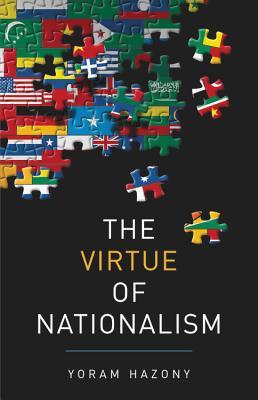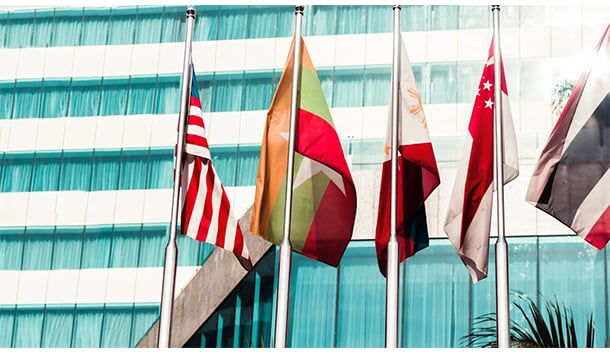However much they may enjoy watching Captain von Trapp sing “Edelweiss” in The Sound of Music, most Catholic intellectuals nowadays are squeamish about delving too deeply into the production’s historical background. Such reticence is hardly surprising, for in Von Trapp’s day Catholic Austria was led by Engelbert Dollfuss—a man deeply enthusiastic about his Germanic heritage, Führer of an organization known as the Fatherland Front, and for a time even aligned with the Italian fascists as part of Mussolini’s Stresa Front. Yet for Chancellor Dollfuss, Austrian nationalism meant just that, and so in addition to battling financiers and communists he also fought tooth and nail to prevent an expansionist Germany from swallowing up his beloved little country. “Our honor, our liberty, the independence of Austria are things over which there can be no compromise,” Dollfuss admonished German officials, even as he vehemently contrasted the spiritual dimensions of his program with those of his more powerful neighbor. “Can anybody who is in earnest about the good of his people and the German traditions of Austria,” he demanded in response to subversion and violence directed against his administration by agents of the Reich, “really believe that the German people is going to find the way to prosperity by means of hand-grenades, bombs and ambushes, and by a system of lies?” We shall never know how Dollfuss’s work would have turned out, for it was nipped in the bud when Nazi operatives assassinated him in 1934. Germany’s annexation of his fatherland came over his dead body.
Although Yoram Hazony never mentions Dollfuss, the contrast between the chancellor in Vienna and his opponent in Berlin neatly illustrates the thesis of The Virtue of Nationalism. Where Dollfuss was a genuine nationalist, committed to his people and to the relatively modest goal of promoting their welfare, the ambition-ridden Hitler stood at the head of what ought to have been called Imperial Socialism. The struggle between Germany and Austria was one in a perennial series of clashes between “two antithetical visions of world order,” one of which proposes “an order of free and independent nations, each pursuing the political good in accordance with its own traditions and understanding,” even as the other promotes “an order of peoples united under a single regime of law, promulgated and maintained by a single supranational authority.”
In fact, Hazony argues, the current conflict between nationalism and globalism goes all the way back to the Old Testament:
The world of Israel’s prophets was dominated by a succession of imperial powers: Egypt, Babylonia, Assyria, and Persia, each giving way to the next. Despite their differences, each of these empires sought to impose a universal political order on mankind as a whole, the gods having sent them to suppress needless disputes among peoples and to create a unified international realm in which men could live together in peace and prosperity. “None hungered in my years or thirsted in them,” Pharaoh Amenemhet I wrote a few centuries before Abraham. . . . And this was no idle boast. By ending warfare in vast regions and harnessing their populations to productive agricultural work, imperial powers were in fact able to bring to millions a relatively reliable peace and an end to the threat of starvation.
Against this backdrop we find Israel, a nation set apart, always longing to find herself even as collaborators and colonial governors try to persuade the Israelites to compromise their identity. Undeniable though the benefits of absorption into an empire may be, they come at a cost—idolatry, which in political terms translates into “submission to gods who would justify any sacrifice so long as it advanced the extension of the imperial realm of peace and kept the production of grain running at maximum capacity.” Promulgated by pharaohs or by modern-day Eurocrats, imperial creeds are in Hazony’s view warped and unwholesome, because they embody “hatred of the universal for the particular,” and “turn the minds of statesmen from the needs and aspirations of the actual people they govern, and toward intrigue in foreign lands that they invariably understand far less than they believe.” Commitment to the national model, by contrast, means a healthy “disdain for wars of indefinite expansion.” A nation preserves diversity in a way that empire does not, for although a nation is a unity, “the unity thus created is always a composite—because the tribes united in this way continue to exist after national independence.”
During the Middle Ages the imperial ideal dominated, taken for granted by popes and emperors, whose quarrels never called into question their underlying context—i.e., the Holy Roman Empire. Hence the modern nation-state is an inherently Protestant tree, one which sprouted because of the revival of Old Testament studies during the Reformation. Thus, in Hazony’s reading, the modern nation was inspired by the example of Israel, and Zionism is the archetype of all other nationalisms. The subsequent decline of the Protestant nation-state can be blamed largely on Enlightenment liberalism, which teaches that “there is only one principle at the base of legitimate political order: individual freedom,” a dogma uncritically rooted in the writings of the great social-contract theorists—Rousseau, Hobbes, and above all John Locke. It is Locke who convinced us to treat the state as a large, consent-based business enterprise, a metaphor utterly divorced from human reality. A flourishing, free state must be founded upon “the strong bonds of mutual loyalty that are characteristic of the family,” not “the weak bonds of consent.”
Sometimes Hazony’s rewarding book is reminiscent of recent pages of this magazine. While his claim that the insatiable E.U. is comparable with the Third Reich may at first seem merely like an argumentum ad Hitlerum, a closer look at the structure and machinations of Angela Merkel’s government supports it. His disapproval of the Roman imperial and medieval regimes will prompt many objections, however, and his analysis bears a striking similarity to those of certain tribally oriented, anti-imperial and anti-Christian neopagans such as Alain de Benoist and Jean Markale. Hazony sees the Roman Empire and the Gospel as different expressions of the same intolerant, domineering impulse, and 20th-century totalitarianisms like Marxism and Nazism as parallel to, if not products of, “Christianity’s hatred for the Jews, who rejected the Gospel’s message of salvation and peace.” Protestants may be attracted to Hazony’s favorable words about Protestantism and “biblical political order,” but they should also keep in mind that he treats Protestantism much as if it were imitation Judaism, and is probably equivocating when he refers to “the Bible.”
Then again, only a “Judeo-Christian” conservative would be shocked to discover an Israeli nationalist coolly maintaining his distance from Christianity, so Hazony’s religious views are in a way far less off-putting than his unqualified swipes at the Boers and ritualistic gestures at the “appalling” history of the American South. Such remarks cannot help appearing painfully ironic when juxtaposed with the author’s complaints about his own homeland’s one-sided portrayal by a self-righteous mass media. Israel suffers from widespread and unrelenting demonization? In certain leftist circles where the Palestinian cause has been romanticized, perhaps, but not in the evangelical movement, Republican establishment journals, or even the New York Times. Here lies a weak spot in the nationalist imagination, which is not always willing to extend toward marginalized lands and peoples even a fraction of the magnanimity and consideration to which it feels its own are entitled.
Some of us may sympathize with Hazony’s categorical rejection of empire, yet in the end find it unpersuasive. What conservatives so often cherish as “Western Civilization” is obviously not a nation, but is rather the lasting philosophical, artistic, and spiritual framework established throughout Europe by the Roman legions and preserved in various forms by various actors, from Charlemagne to the Byzantines to the British Royal Navy. Pace Hazony, I am inclined to say that what we face is an unprecedented political problem—not empire as such, but a liberal empire which is so insanely dishonest as to denounce imperialism. Those of us truly devoted to the West might look up the word imperium, and find a concept—authority—that has been resented, attacked, and mocked by the impatient revolutionary mind from the very beginning.
In the end, though, even the mistakes of an intelligent interlocutor may open up unexplored routes of inquiry. For instance, we might investigate the metaphysical implications of using the word hatred to describe the orientation of the universal toward the particular. How does that jibe with the Aristotelian position, that it is through particulars that the universal may be known? Although we will reject Hazony’s Nietzsche an usage of the Bible, along with his implausible assumption that the blame for Christian-Jewish conflicts lies always and wholly on the Christian side, his detailed examination can still help us reflect upon the relationship between the Old and New Testaments. Hazony’s candid loyalty to his own people is refreshing, and there can be no question that he is working at a higher level of discourse than are his liberal academic counterparts. Nor, for that matter, can he be much more mistaken about the nature of Christianity than are the myriad Catholic and Southern Baptist apologists for open borders. There is more to learn from an honest, scholarly nationalist than from the preachers of globalism, whose scorn for identity, heritage, and nationality barely conceals an unwholesome contempt for mankind as such.

[The Virtue of Nationalism, by Yoram Hazony (New York: Basic Books) 304 pp., $18.99]



Leave a Reply